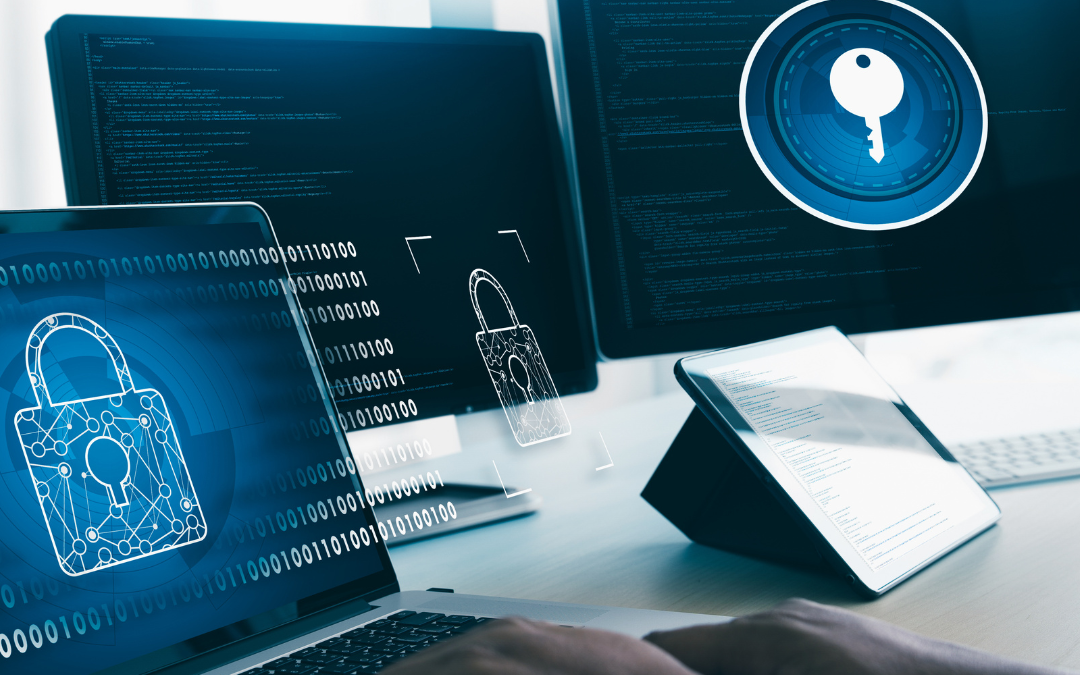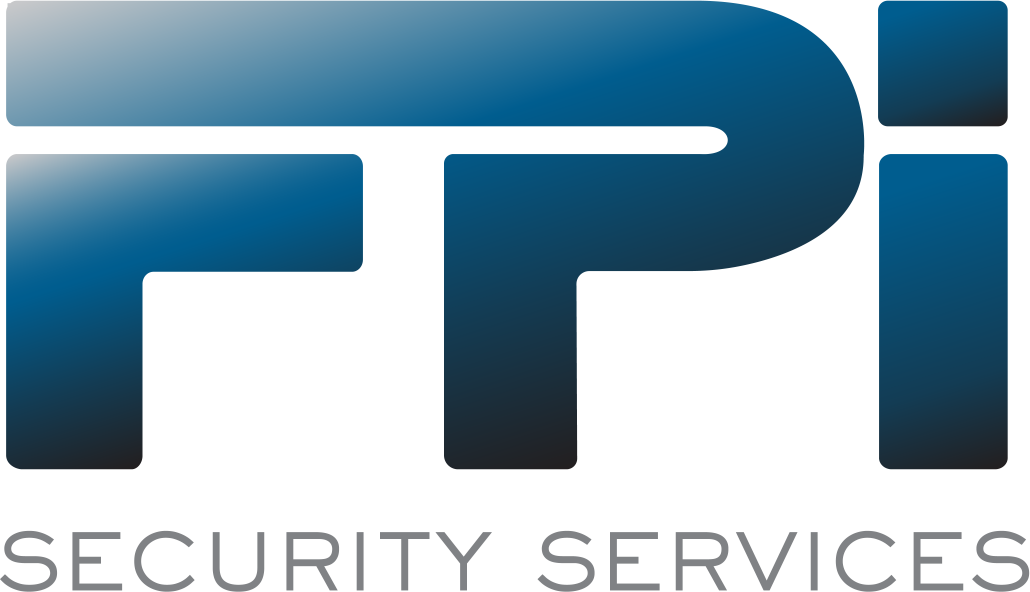
Blog Post
Safeguard Your Digital World: Cybersecurity Matters
In today's interconnected world, where technology is an integral part of our daily lives, it's crucial to prioritize our online safety and protect ourselves from cyber threats. Cyber threats are ever-present, but with a few simple measures, you can fortify your digital defenses while you're out and about enjoying the summer. By following a few simple measures, you can ensure a safer online experience and protect your valuable information from falling into the wrong hands.
Create Strong and Unique Passwords
One of the most fundamental steps in maintaining cybersecurity is creating strong and unique passwords for each of your online accounts. Avoid using common or easily guessable passwords, such as your name, birthdate, or "password123." Instead, opt for a combination of uppercase and lowercase letters, numbers, and special characters. This helps keep not only your information safe and secure, but also deters people from attempting to crack your passwords to get into your accounts. It is also recommended to consider using a reliable password manager to securely store and manage your passwords across various platforms.
Avoid Using Public Wi-Fi Networks for Sensitive Transactions
Public Wi-Fi networks have become a common feature in coffee shops, airports, hotels, and other public places. While these networks offer convenience and connectivity on the go, they often lack necessary security measures, making them a prime target for hackers seeking to intercept sensitive information. It's essential to exercise caution and avoid conducting sensitive transactions while connected to public Wi-Fi networks. This includes avoiding using online banking, accessing your email or purchasing things with a credit card while connected to these public networks.
When you connect to a public Wi-Fi network, your data can potentially be intercepted by malicious individuals who are connected to the same network. This means that any information you transmit over the network, such as login credentials, financial details, or personal data, could be exposed to unauthorized parties. Hackers can employ various tactics, such as network sniffing or setting up rogue access points, to intercept your data without your knowledge. By waiting until you have a more secure network connection, such as your home Wi-Fi or a trusted cellular data network, you significantly reduce the likelihood of your information being compromised.
If you find yourself in a situation where using public Wi-Fi is unavoidable, consider employing a virtual private network (VPN) for an extra layer of security. A VPN encrypts your data traffic, making it unreadable to anyone attempting to intercept it. By routing your connection through a secure server, a VPN establishes a protected tunnel for your data to travel through, shielding it from prying eyes. This encryption adds an additional safeguard against potential hackers on the same network.
Stay Vigilant against Phishing Emails
Phishing emails are deceptive messages designed to trick recipients into revealing sensitive information by clicking on malicious links. Exercise caution when opening emails from unfamiliar senders or messages that appear suspicious. Look for signs of phishing, such as grammatical errors, requests for personal information, or urgent demands. When in doubt, avoid clicking on any links or providing sensitive information. Instead, independently verify the sender's legitimacy through a trusted source.
Stay Vigilant on Phishing Emails
In the ever-evolving landscape of cyber threats, phishing emails remain a prevalent and deceptive tactic used by hackers to gain unauthorized access to personal information or compromise computer systems. These fraudulent emails are cleverly designed to appear legitimate and often mimic the branding and communication style of reputable organizations. To protect yourself and your sensitive information, it's crucial to stay vigilant and exercise caution when dealing with emails, especially those from unfamiliar senders or those that raise suspicion.
One of the first indicators of a phishing email is poor grammar, misspellings, or awkward language. Legitimate organizations typically have high standards for their communication, and glaring errors may indicate a fraudulent attempt. Additionally, be wary of emails that request personal information, such as passwords, Social Security numbers, or financial details. Reputable organizations rarely ask for such sensitive information via email, so treat any such request with suspicion.
Phishing emails often create a sense of urgency to prompt quick action from the recipient. Be cautious of emails that demand immediate attention, threaten dire consequences if you don't comply, or promise enticing rewards. These tactics are intended to manipulate your emotions and rush you into making hasty decisions that could compromise your security. Instead of succumbing to the pressure, take a step back and carefully evaluate the email's legitimacy.
If you receive an email that raises doubts or suspicions, it's essential to resist the urge to click on any links or provide sensitive information. Hover your mouse over any embedded links to preview the URL without clicking. Look for discrepancies between the displayed URL and the one shown in the email. When in doubt, it's best to independently verify the sender's legitimacy. Contact the organization directly through their official website or a trusted phone number to confirm the email's authenticity. By taking these precautionary measures, you can protect yourself from falling victim to phishing attacks and safeguard your personal information. By adopting a proactive approach and staying informed about the latest phishing techniques, you can stay one step ahead of cybercriminals and protect yourself and your digital assets.
Keep Devices and Software Up to Date
Regularly updating your devices and software is crucial for maintaining optimal cybersecurity. Software updates not only bring new features and improvements to your devices, but also play a significant role in keeping your digital environment secure by addressing vulnerabilities identified by developers and security researchers.
Hackers are continually searching for weaknesses in operating systems, web browsers, and other software applications to exploit them for their malicious activities. When software vulnerabilities are discovered, developers work diligently to create patches and updates that address these weaknesses and enhance the security of their products. By keeping your devices and software up to date, you ensure that you have the latest protections against emerging threats. To simplify the update process, it's recommended to enable automatic updates for your operating system, web browsers, and antivirus software. Most operating systems, including Windows, macOS, and mobile platforms, provide options to automatically download and install updates. Web browsers such as Chrome, Firefox, and Safari also have automatic update features to keep you protected while browsing the internet.
Additionally, make it a habit to regularly check for updates for other software applications you frequently use, such as office productivity suites, media players, or graphic editing tools. Many software programs have built-in update mechanisms or notify you when new updates are available. Take advantage of these notifications and ensure you promptly apply the updates to enhance the security of your system.
By keeping your devices and software up to date, you not only benefit from improved functionality and performance but also stay ahead of cyber threats. Hackers often target outdated software versions because they are more vulnerable to their attacks. Regular updates help close those security gaps and provide an essential layer of defense against potential breaches.
By following these simple yet effective cybersecurity measures, you can fortify your digital defenses and enjoy a worry-free online experience this summer. Remember, safeguarding your digital world is an ongoing process that requires diligence and awareness.
